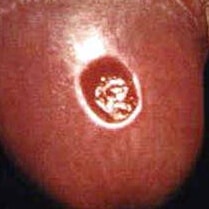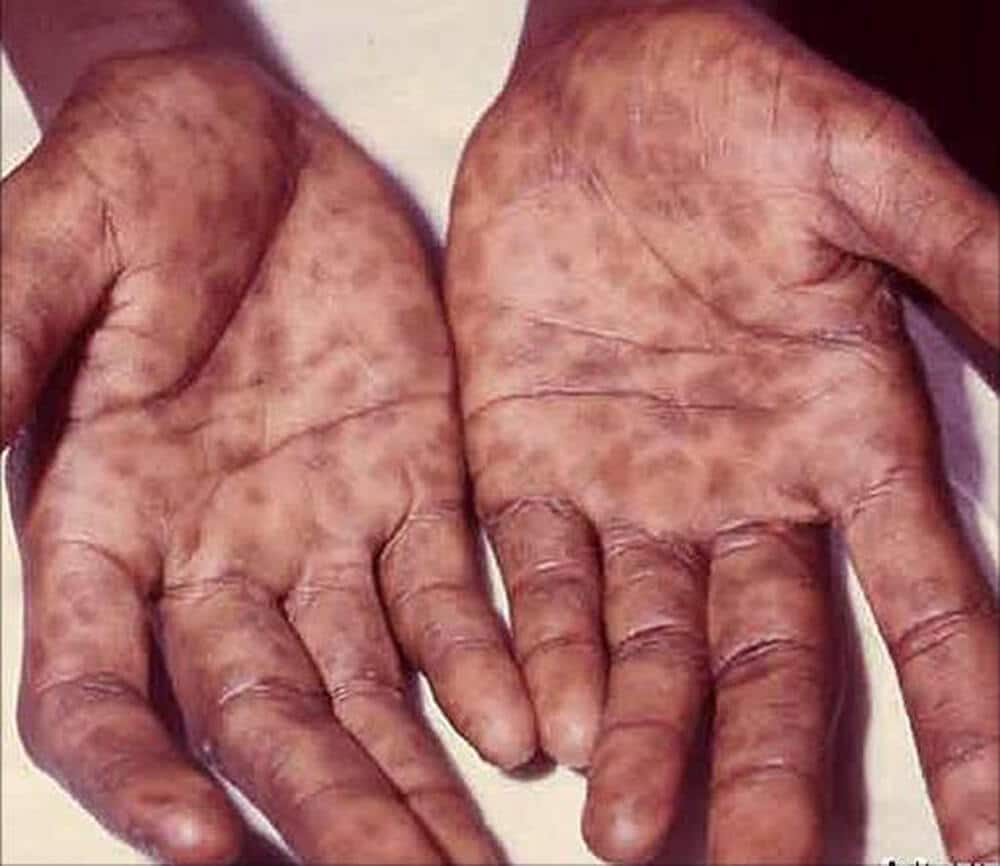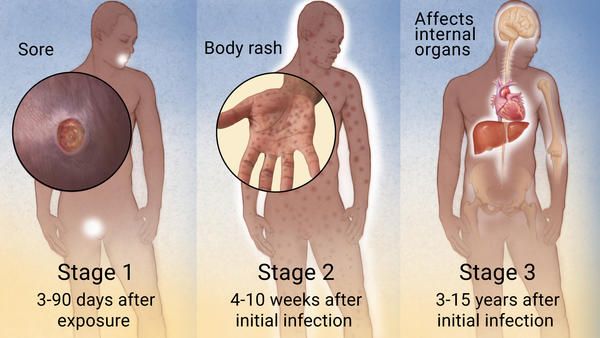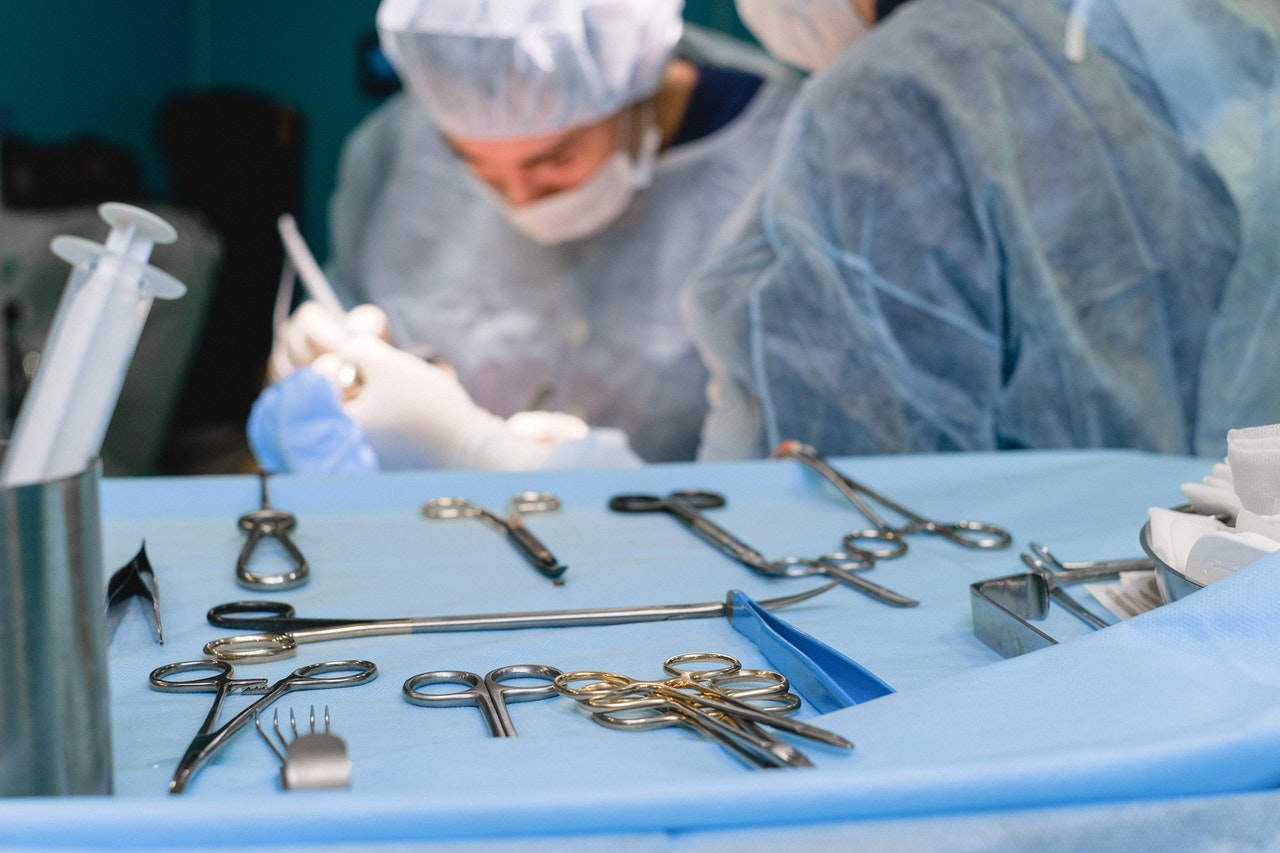Syphilis is a highly contagious sexually transmitted disease (STD) that can have very serious complications when left untreated, but it is simple to cure with the right treatment.
Syphilis is a “skin-to-skin” disease. It can be transmitted when a sore or other syphilis lesion of a sex partner rubs against a tiny cut or opening in the skin. Once inside the body, the bacteria attacks the body in 4 stages: The Primary Stage, the Secondary Stage, the Latent Stage and the Tertiary Stage.
Syphilis has been called “The Great Pretender”, as its symptoms can look like many other diseases.
This is because the first stage of Syphilis, the Primary Stage, presents in small painless sores called chancres that people often mistake for insect bites or a rash. In later stages, symptoms can easily be mistaken for the flu.
The only way to know for sure if you have Syphilis is to get Tested.
What are the Symptoms of Syphilis?
Syphilis attacks the body in stages that take place over a number of months or even years.
Stage 1: Primary Stage
A single sore or chancre, appears at the place where syphilis entered the body. Sometimes there are multiple sores. The chancre is usually (but not always) firm, round, and painless.
Because they usually appear around the vagina or anus, they can be difficult to notice. The sore lasts 3 to 6 weeks and heals regardless of whether a person is treated or not. However, if the infected person does not receive adequate treatment, the infection progresses to the next stage.
Stage 2: Secondary Stage
Skin rashes and/or sores in the mouth, vagina or anus appear, usually several weeks after Stage 1 chancres have healed. The rash usually is not itchy, and appears rough, red, or reddish brown.
Sometimes rashes associated with secondary syphilis are so faint that they are not noticed, or sometimes the appearance of the rash is different so it gets confused with another disease.
Large, raised, gray or white lesions, known as condyloma lata, may develop in warm, moist areas such as the mouth, underarm or groin region.
Other symptoms may include
- Fever
- Swollen lymph glands
- Sore throat
- Patchy hair loss
- Headaches
- Weight loss
- Muscle aches
- Fatigue.
The symptoms of secondary syphilis will go away with or without treatment. However, without treatment, the infection will progress to later stages.
Stage 3: Latent Stage
The Syphilis infection becomes dormant and does not cause symptoms for an extended period of time — up to 20 years. The syphilis is still active in your body, despite lack of symptoms. If the syphilis infection progresses through the latent stage without treatment, it enters the final, deadly stage.
Stage 4: Tertiary Stage
The final stage of untreated syphilis typically occurs between 10 and 30 years after the initial infection. The bacteria attacks multiple systems of the body at once, including the brain, nerves, eyes, heart, blood vessels, liver, bones, and joints.
Debilitating side-effects include, but are not limited to blindness, loss of motor skills, dementia, and damage to the central nervous system and internal organs, such as the heart, brain, eyes, kidneys, and bones.
In most cases, tertiary stage syphilis is distinguished by a descent into mental illness, followed by death.
A person of any age, sex, race, or sexual orientation can get infected with Syphilis.
Having Unprotected Vaginal, Anal, or Oral Sex with someone who has Syphilis is the primary way the disease spreads.
An infected mother can give syphilis to her unborn baby, where it can cause damaging complications or kill the baby.
You can get syphilis by direct contact with a syphilis sore during vaginal, anal, or oral sex. Many times, a person who doesn’t know they are infected is responsible for infecting others.
Correct use of a condom will reduce the risk of contacting syphilis, but it won’t eliminate it.
The surest way to avoid transmission of syphilis is to abstain from sexual contact, or to be in a long-term mutually monogamous relationship with a partner who has been tested and is known to be uninfected.
Syphilis makes it much easier to become infected, and infect others, with the HIV Virus.
There is an estimated 2- to 5-fold increased risk of acquiring HIV, if individuals with a syphilis infection are genitally exposed to HIV.
This is because Syphilis wears your body down trying to fight it, and the Sores that appear at Stages 1 and 2 provide easy access for HIV to pass through the barrier of your skin, plus present perfect breeding grounds for HIV.
HSV infections can cause major complications for infants born to mothers with the virus.
Depending on how long a pregnant woman has been infected, she may have a high risk of having a stillbirth or of giving birth to a baby who dies shortly after birth. Untreated syphilis in pregnant women results in infant death in up to 40 percent of cases.
An infected baby born alive may not have any signs or symptoms of disease. However, if not treated immediately, the baby may develop serious problems within a few weeks. Untreated babies may become developmentally delayed, have seizures, or die. All babies born to mothers who test positive for syphilis during pregnancy should be screened for syphilis and examined thoroughly for evidence of congenital syphilis.
Yes! Treatment is in the form of penicillin given by injection. If it is suspected that the bacteria has been in the body 1 year or less, usually only one shot of penicillin will be administered. If it is suspected that the bacteria has been in the body longer than 1 year, several shots of penicillin may be needed to clear the bacteria. There are other antibiotics that can be used to treat syphilis when a person is allergic to penicillin.
However, treatment will not undo any internal damage that the infection has already done. You can also catch syphilis again, so get tested regularly.
Syphilis Test
$99.00Add to cart
The Rapid Plasma Reagin (RPR) is a simple blood test used to determine whether someone has syphilis. This test detects antibodies produced by the body shortly after the infection occurs. The earliest the RPR should be taken is 10 days. The antibodies are most commonly detectable by 3 weeks. If the RPR is positive, an FTA confirmation test is ordered to verify the result.






